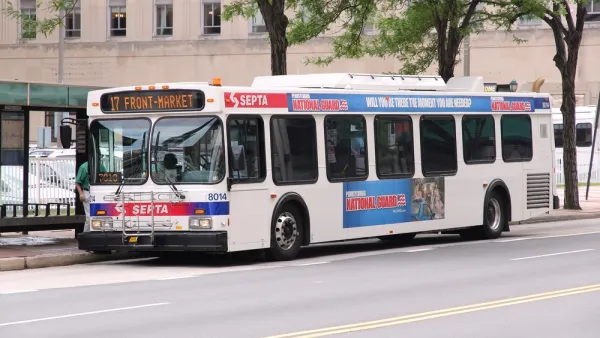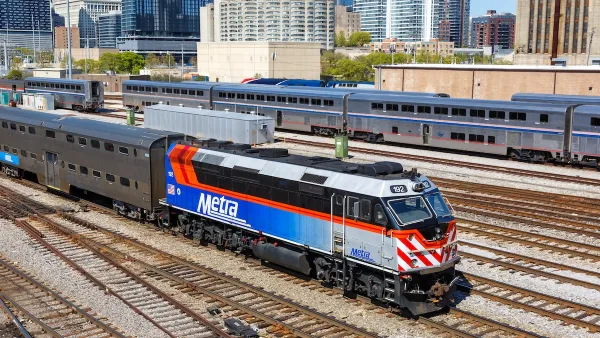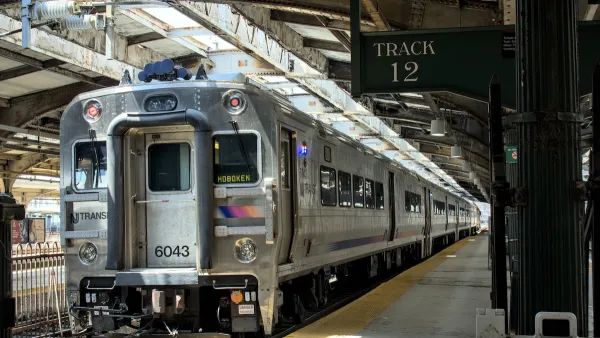A recent article tackles the counter-intuitive state of transit investment in the St. Louis region: “While the abundance of transit possibilities create a veneer of progress, the region is quietly in a public transit state of crisis.”
Scott Ogilvie examines the current morass preventing the St. Louis region’s political leadership from marshaling the resources to jump-start a new generation of transit service improvements—eight years after the MetroLink Blue Line opened.
As Ogilvie explains, demand for transit is high among the public. “Even MoDOT’s surveys show St. Louis area residents want transit expansion more than they want additional road capacity.”
But the public demand for traffic is not matched by the political will to deliver any of the many possible transit investments: “Years of regional leadership equivocating on transit priorities have left us with a long list of possibilities: the North/South MetroLink alignment, the Downtown Streetcar, Bus Rapid Transit, and the Loop Trolley. But which of theses projects most enhances the existing network? No one at the top of the political/transit heap has expressed a strong preference for any of them.”
Ogilvie suggests some possibilities for breaking the backlog, including the following: “Metro needs to be the lead agency on transit projects. The political liability of another false start is too high. St. Louis already has a fractured political landscape, the region can’t handle a jigsaw puzzle of transit agencies.” Other suggestions include prioritizing service improvements on routes with the most ridership.
FULL STORY: Critical Choices Ahead for St. Louis Transit

National Parks Layoffs Will Cause Communities to Lose Billions
Thousands of essential park workers were laid off this week, just before the busy spring break season.

Retro-silient?: America’s First “Eco-burb,” The Woodlands Turns 50
A master-planned community north of Houston offers lessons on green infrastructure and resilient design, but falls short of its founder’s lofty affordability and walkability goals.

Delivering for America Plan Will Downgrade Mail Service in at Least 49.5 Percent of Zip Codes
Republican and Democrat lawmakers criticize the plan for its disproportionate negative impact on rural communities.

Test News Post 1
This is a summary

Test News Headline 46
Test for the image on the front page.

Balancing Bombs and Butterflies: How the National Guard Protects a Rare Species
The National Guard at Fort Indiantown Gap uses GIS technology and land management strategies to balance military training with conservation efforts, ensuring the survival of the rare eastern regal fritillary butterfly.
Urban Design for Planners 1: Software Tools
This six-course series explores essential urban design concepts using open source software and equips planners with the tools they need to participate fully in the urban design process.
Planning for Universal Design
Learn the tools for implementing Universal Design in planning regulations.
EMC Planning Group, Inc.
Planetizen
Planetizen
Mpact (formerly Rail~Volution)
Great Falls Development Authority, Inc.
HUDs Office of Policy Development and Research
NYU Wagner Graduate School of Public Service





























